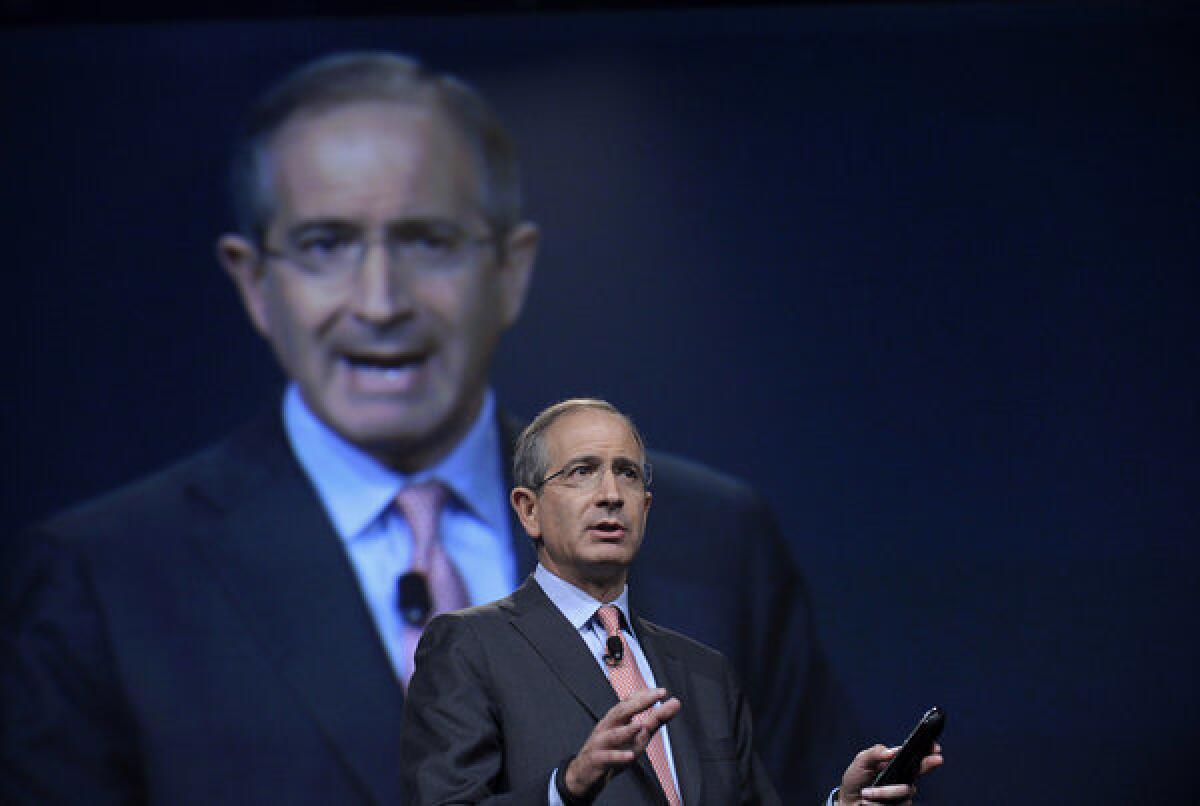Comcast should root for Aereo’s legality, analyst says

Comcast Corp. CEO Brian Roberts speaks this month at the Cable Show trade show in Washington.
Comcast Corp. says Aereo, a company that distributes broadcast programming on the Web, violates its copyrights, but according to often-contrarian analyst Richard Greenfield of BTIG, the cable giant is fighting the tech firm at its own peril.
Comcast has argued that the Web TV company distributes its content without permission, which hurts its broadcaster, NBC Universal. CBS, Fox and ABC have all made similar legal arguments.
But Aereo could help Comcast’s pay-TV business, Greenfield said in a note to clients Monday. Pay-TV distributors such as Comcast periodically negotiate retransmission costs with broadcasters, and broadcasters can threaten to “go dark” on Comcast’s service.
PHOTOS: Hollywood backlot moments
With Aereo as a legally sanctioned service, Comcast could offer it as an alternative way for customers to get broadcasters’ programming. That would give Comcast an advantage in the negotiations, Greenfield said.
“Comcast should be openly rooting for Aereo’s legality,” Greenfield wrote, “since the benefit of increased leverage for its cable system business in retransmission consent negotiations far outweighs the risks to the one broadcast network owned by Comcast’s NBC division.”
Aereo, which uses antennas to capture broadcast signals and deliver them to users, first launched last year in New York and is expanding to 22 markets in the coming months.
PHOTOS: Celebrities by The Times
Owners of broadcast companies including Comcast, CBS Corp., News Corp. and Walt Disney Co. have sued Aereo. The legal dispute is ongoing.
In April, the U.S. Court of Appeals for the Second Circuit in New York upheld a lower court’s ruling that Aereo’s service does not infringe on copyrights.
Comcast Chief Executive Brian Roberts took to CNBC last month to criticize the decision. “They are going to see a lot of legal challenges because there is certainly a strong belief by a number of companies that it is not legal, that is taking someone’s property and redistributing it without their consent,” he said.
ALSO:
Paula Deen’s Food Network ratings had fallen before controversy
WGA, East President Michael Winship to run unopposed for 4th term
Warner Bros. CEO Kevin Tsujihara does away with movie, TV fiefdoms
Twitter: @rfaughnder | ryan.faughnder@latimes.com
More to Read
From the Oscars to the Emmys.
Get the Envelope newsletter for exclusive awards season coverage, behind-the-scenes stories from the Envelope podcast and columnist Glenn Whipp’s must-read analysis.
You may occasionally receive promotional content from the Los Angeles Times.






